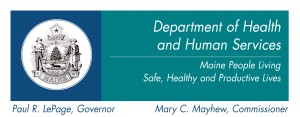Word Play All Day—Early Literacy in Action — Selected Resources


Please note: Some resources may require a subscription or have restricted access due to a publisher paywall.
Books:
- Enz, B., Mandel Morrow, L. (2009). Assessing Preschool Literacy Development. Newark, DE: International Reading Association, Inc.
- Strickland, D.S., & Schickedanz, J.A. (2009). Learning About Print in Preschool: Working With Letters, Words, and Beginning Links With Phonemic Awareness. Newark, DE: International Reading Association, Inc.
Articles/Tools:
- Child Care Aware of America. (2015). Learning to read & write begins at birth: A guide to early literacy in child care (PDF). Available at https://childcareaware.org/wp-content/uploads/2016/04/112EngM.pdf
- Gardner-Neblett, N., & Gallagher, K. C. (2013). More than baby talk: 10 ways to promote the language and communication skills of infants and toddlers. (PDF) Chapel Hill: The University of North Carolina, FPG Child Development Institute. Available online at http://mtbt.fpg.unc.edu/sites/mtbt.fpg.unc.edu/files/imce/documents/BabyTalk_WEB.pdf
- Morris, S.L. (2005). Picture This: Inclusion in Children’s Books [PDF]. Child Care Plus+, 15(2), 1. Retrieved from http://www.ccplus.org/newsletters/15.2newsletter.pdf
- Mufson, L. and Strasser, J. (2015, October/November). Using Bloom’s Taxonomy questioning to extend preschoolers’ thinking. Retrieved from https://www.naeyc.org/resources/pubs/tyc/oct2015/using-blooms-taxonomy-questioning
- Neuman, S.B., & Roskos, K. (2005). Whatever Happened to Developmentally Appropriate Practice in Early Literacy? (PDF). Journal of the National Association for the Education of Young Children, (July). Retrieved from http://www-personal.umich.edu/~sbneuman/pdf/beyond.pdf
- National Dissemination Center for Children with Disabilities. (2004). NICHCY Connections…to Literacy (PDF). Retrieved from https://www.osepideasthatwork.org/sites/default/files/26%20-%20NICHCY%20Connections%20Reading%20with%20Older%20Children.pdf
- U.S. Office of the Administration for Children & Families, Early Childhood Development. (July, 2015). Talk, Read, and Sing Together Every Day! Available online at https://www.ed.gov/early-learning/talk-read-sing – Tip Sheets for Families, Caregivers and Early Learning Educators – Made specifically for families, caregivers and early educators, these resources can help enrich a child’s early language experiences by providing research-based tips for talking, reading, and singing with young children every day beginning from birth. All tip sheets are available in English and Spanish, and can be downloaded for free from the website.
- Zero-to-Three. (2003). Early Literacy. Available online at http://www.zerotothree.org/early-learning/early-literacy
Videos and Learning Modules:
- Center for Early Literacy Learning. (n.d.). (2011) CELL videos are designed for the teacher, parent, trainer, coach and home visitor. Each video introduces and illustrates a key component of the CELL Early Literacy Learning Model. The home visitor may use a video to introduce and illustrate a component with a parent. The trainer may use a video to introduce, illustrate or practice a component with teachers. The videos are for use by Teachers and with Parents as indicated. Retrieved from http://www.earlyliteracylearning.org/ta_pract_videos1.php
Websites:
- All Children Can Read — The National Consortium on Deaf-Blindness (NCDB) has created this new Web site. It is built on a framework that incorporates stages of literacy development and key components of reading into instructional strategies for children with dual sensory challenges. It is organized around evidence-based strategies that have been identified as effective in building emergent literacy skills and moving children along the continuum toward independent reading. The site offers strategies, practical examples and resources designed to give children with deaf-blindness, multiple disabilities and complex challenges expanded learning opportunities in literacy instruction.
- CAST UDL Book Builder – this site has resources to help you create, share, publish and read digital books that engage and support diverse learners according to their individual needs, interests and skills.
- Center for Early Literacy Learning (CELL) – a major initiative of the Center for Evidence-Based Practices at the Orelena Hawks Puckett Institute. Retrieved from http://www.earlyliteracylearning.org/
- PACER Center. (2004, Spring). Children with disabilities thrive in literacy-rich environments. Early Childhood Connection. Retrieved from https://www.pacer.org/newsletters/ec/spring04.pdf
- Reading rockets: Teaching kids to read and helping those who struggle – offers a wealth of reading strategies, lessons, and activities designed to help young children learn how to read and read better. Retrieved from http://www.readingrockets.org/
- Zero to Three. (n.d.). Brain Wonders: Early Literacy. Retrieved from https://www.zerotothree.org/early-learning/early-literacy
Updated: 07/25/2024
Funding for the 2011 update of the Growing Ideas Resources for Guiding Early Childhood Practices has been provided by the Maine Department of Health and Human Services’ Office of Child and Family Services, Early Childhood Division.

